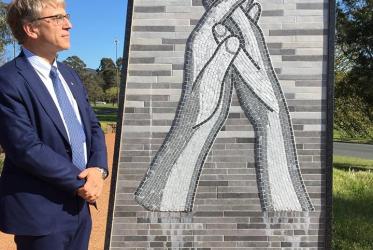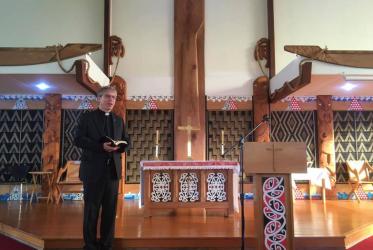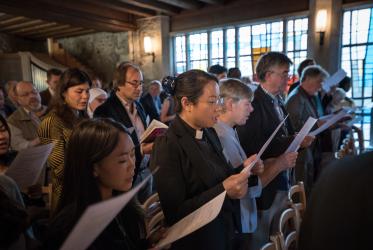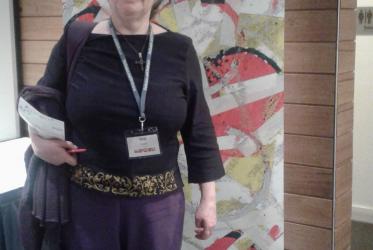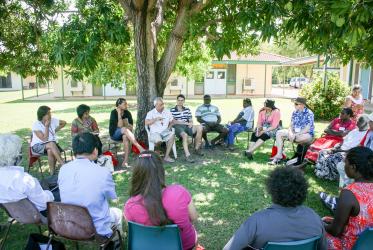Displaying 101 - 120 of 169
WCC general secretary visits Aotearoa New Zealand
10 October 2016
Indigenous spirituality: can it transform injustice into justice?
01 September 2016
La spiritualité autochtone peut-elle transformer l’injustice en justice?
01 September 2016
Religion: Way of war or path to peace?
30 June 2016
La religion: chemin de la guerre ou voie de la paix?
30 June 2016
New Executive Committee members elected in Trondheim
28 June 2016
